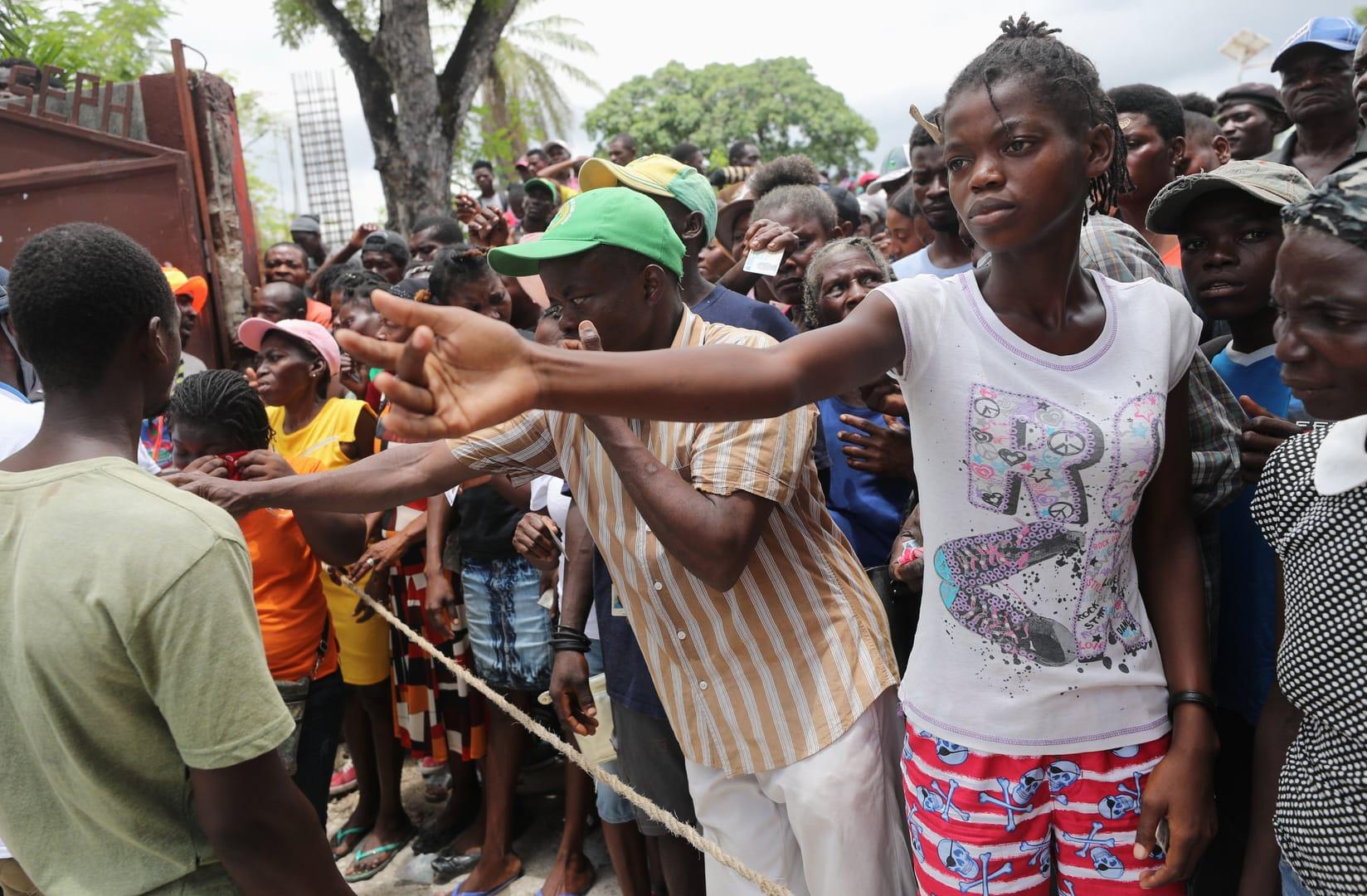NASHVILLE, Tennessee — Theresa Patterson, the Nashville-based executive director of the Parish Twinning Program of the Americas, has been acting as a clearinghouse for information about all the destruction caused in Haiti by a magnitude 7.2 earthquake.
The program pairs congregations in the United States with needy parishes in Haiti and other countries to provide material and spiritual support, and Patterson has been collecting reports from throughout Haiti since the Aug. 14 quake.
“It is deeply saddening and hard to fathom that Haiti has once again endured such unbelievable devastation and suffering,” Patterson wrote in an email to all the congregations that participate in the program.
To date, the quake’s death toll was more than 2,200 and 12,000 people were injured, according to World Vision. An estimated 53,000 homes were destroyed in the quake, with about 77,000 more damaged, the BBC said.
She asked the congregations to share any information they might have, and reports started pouring in of buildings destroyed and people hurt or killed.
“Churches were damaged in Cavaillon, St. Louis du Sud and the Cathedral and Sacre-Coeur in Les Cayes,” Patterson wrote in her email.
“The church, convent and school were all damaged in St. Jean du Sud, while Vieux Bourg d’Aquin was not spared,” she added.
“Many other parishes not currently twinned in the Program have sustained damage: Sucerie-Henri, Pliche, Maniche, where both the church and rectory were destroyed, and the hospital at Baraderes. The earthquake occurred during a baptism at Les Anglais and several children died.”
She received similar reports of damage, death and injuries in other communities in Haiti, including Dame Marie on the far western edge of Haiti, and L’Asile and Bouzy, both located in the center of the southern peninsula near the epicenter of the earthquake.
In Petite Riviere de Nippes, the Parish Twinning Program’s sister organization, the Visitation Hospital Foundation, built Visitation Hospital. Although there was damage to buildings in the small coastal town, the hospital itself was spared any major problems, Patterson said.
“We’re not all that far from the epicenter but believe it or not we managed to get by with only a little water problem,” Patterson said.
When the hospital was built, the engineer suggested they strengthen the foundation in case of an earthquake, Patterson said. “I said, ‘Earthquakes! I’ve never heard of earthquakes in Haiti.'”
But she decided to take on the extra expense to strengthen the foundation, and the hospital has survived not only the most recent earthquake but also the one in 2010 that killed more than 200,000 people, Patterson noted.
The staff at Visitation Hospital was gearing up to treat earthquake victims, Patterson said. The quake left many roads in the area impassable, making it difficult for people to make it to the hospital, she said.
So Patterson has been trying to raise money to buy medical supplies and medicines for the clinic “so we could send the medical team out (to neighboring communities) to see if they can help,” she said.
Relief and recovery efforts have been hampered by the coronavirus pandemic, the economic and political crisis resulting from the assassination of Haiti’s president in July, and drenching rains from as Tropical Depression Grace rolled across the country just days after the earthquake.
“They were bracing for it and very worried it would cause flooding and mudslides,” Patterson said.
Many people were sleeping outdoors because they fear more buildings might collapse due to aftershocks, and they had to ride out the storm in tents and under tarps, Patterson said.
The Haitian government has been unable to offer much help, Patterson said, but officials have said they would work to distribute any humanitarian aid within 48 hours of its arrival in the country.
The biggest needs are food, medical supplies and drinking water, Patterson said.
The U.S. Agency for International Development, Catholic Relief Services and the U.S. Conference of Catholic Bishops through its Bishops Emergency Disaster Fund are among the agencies that are providing aid.
Food for the Poor had been stockpiling food for Haiti in anticipation of hurricane season, Patterson said. After the earthquake hit, the organization sent seven containers of food with plans to send another 30, she said.
Patterson is hopeful that the U.S. parishes and congregations that participate in the Parish Twinning Program will be able to provide aid to their twinned parish in Haiti as well as nearby communities that do not have a twin in the United States.
People should donate money that can be used to purchase what is needed rather than try to ship supplies to Haiti themselves, Patterson told the Tennessee Register, newspaper of the Diocese of Nashville said.
People can make an online donation to the Parish Twinning Program of the Americas at its website: parishprogram.org or to the Visitation Hospital Foundation at visitationhospital.org.
“If they are earmarked for earthquake relief, we’ll make sure it gets to those who need help,” Patterson said.
Telli is managing editor of the Tennessee Register, newspaper of the Diocese of Nashville.














